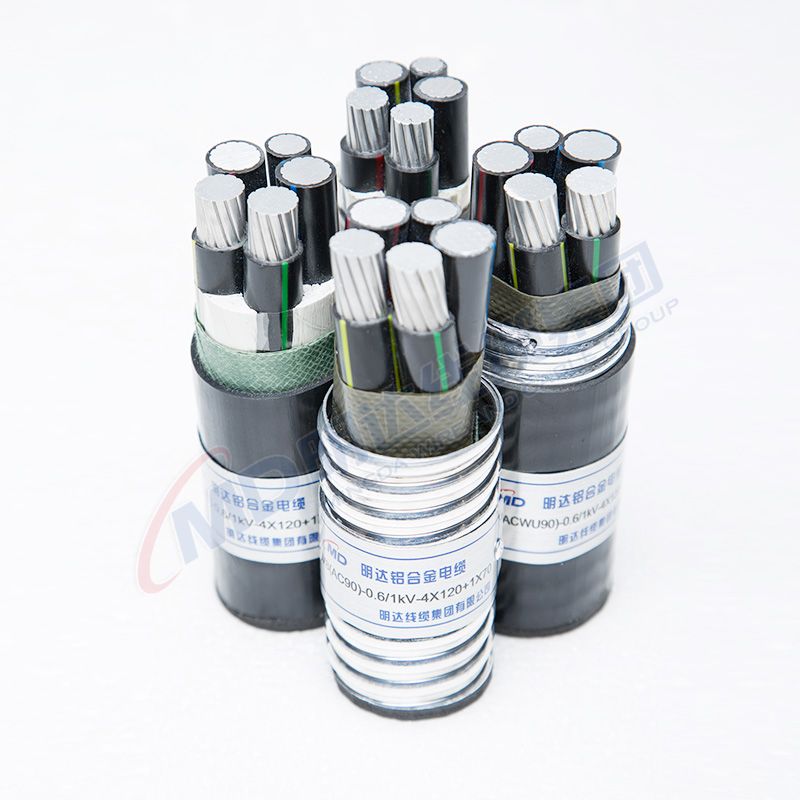9 月 . 21, 2024 19:04 Back to list
electric cable wire 2.5mm
Understanding 2.5mm Electric Cable Wire Specifications and Applications
Electric cable wire plays a vital role in electrical installations and appliances, as it facilitates the safe and efficient transmission of electrical power. Among various wire sizes, the 2.5mm electric cable wire is widely utilized due to its balance of flexibility, capacity, and safety. This article delves into the specifications, advantages, and applications of 2.5mm electric cable wire.
Specifications
The term 2.5mm refers to the cross-sectional area of the conductive wire, which is typically measured in square millimeters. This size is commonly used for residential wiring, particularly for circuits that require moderate power levels. The wire is often constructed with copper or aluminum materials, with copper being more conductive and favored in most applications due to its superior conductivity and lower resistance.
A 2.5mm copper wire can typically handle a current load of approximately 20-25 amps, depending on the installation environment, insulation type, and overall cable length. It is also important to note that the permissible current carrying capacity may vary according to local electrical codes and regulations, so always consult relevant guidelines when designing electrical systems.
Insulation and Coating
The insulation material for 2.5mm electric cable wire is crucial for safety and efficiency. Common insulating materials include PVC (Polyvinyl Chloride), XLPE (Cross-Linked Polyethylene), and rubber. Each material offers different properties PVC is cost-effective and resistant to many chemicals, while XLPE provides excellent thermal and electrical characteristics for demanding applications. Rubber insulation offers flexibility and is often used in portable or temporary installations.
Advantages of 2
.5mm Electric Cable Wireelectric cable wire 2.5mm

1. Versatility The 2.5mm electric cable wire is suitable for various applications, including lighting circuits, power outlets, and general wiring tasks. Its ability to carry sufficient current makes it a preferred choice for both residential and commercial purposes.
2. Ease of Installation Typically, the 2.5mm wire is flexible, making it easier to handle and manipulate during installation. Its pliability allows it to navigate tight spaces while maintaining its integrity.
3. Safety Features The insulation and construction of 2.5mm wire provide significant safety against electrical hazards. Insulated wire minimizes the risk of electrical shock and short circuits, thereby enhancing overall safety in electrical installations.
4. Cost-Effectiveness The 2.5mm electric cable wire is often more affordable than larger diameter wires while still offering adequate performance. This balance of cost and capability makes it a choice for many DIY enthusiasts and professionals.
Applications
The versatility of the 2.5mm electric cable wire lends itself to numerous applications. In residential settings, it is commonly used for fixed installations such as lighting, sockets, and kitchen appliances. In commercial environments, it may power machinery and equipment. Furthermore, the wire is often used in extension leads, ensuring that households and workspaces maintain electrical connectivity without compromising safety.
Conclusion
The 2.5mm electric cable wire is an essential component in electrical installations due to its manageable size, capacity, and versatility. Having a good grasp of its specifications, insulation options, advantages, and applications allows users—whether homeowners or electricians—to make informed decisions for their electrical needs. By adhering to safety standards and choosing the appropriate wire size, one can significantly reduce the risks associated with electrical installations while optimizing performance.
Share
-
Understanding the Differences Between Wafer Type Butterfly Valve and Lugged Butterfly ValveNewsOct.25,2024
-
The Efficiency of Wafer Type Butterfly Valve and Lugged Butterfly ValveNewsOct.25,2024
-
The Ultimate Guide to Industrial Swing Check Valve: Performance, Installation, and MaintenanceNewsOct.25,2024
-
Superior Performance with Industrial Swing Check Valve: The Essential Valve for Any SystemNewsOct.25,2024
-
Industrial Swing Check Valve: The Ideal Solution for Flow ControlNewsOct.25,2024
-
You Need to Know About Industrial Swing Check Valve: Functionality, Scope, and PerformanceNewsOct.25,2024